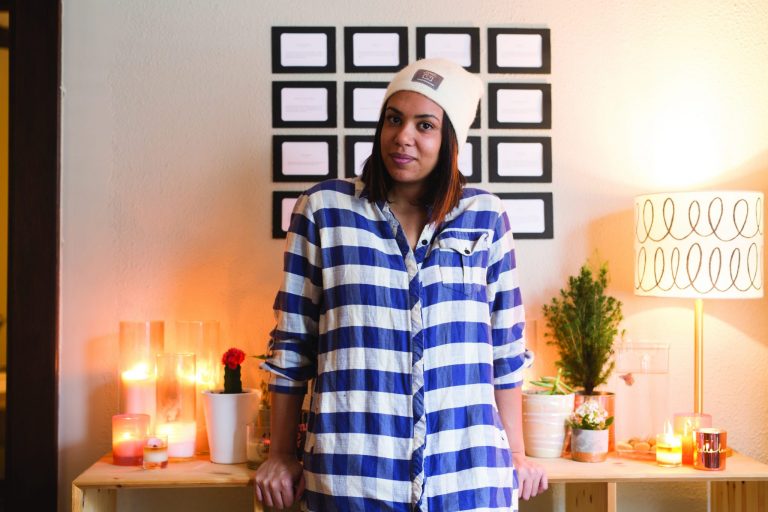Leaving her mark wherever she goes, Mona Faith Mousa, a spoken word poet of nearly 12 years, has done the same in Kitchener Waterloo, after only moving here this past August.
With her artist management agency for artists of colour Feather & Anchor, and her overall advocacy on social justice issues such as accessibility, LGBTQ equality and gender equity, Mousa aims to challenge the approach in which we perceive others.
Her upcoming project, Today, is no exception. According to Mousa, this 12-month book project aims to address invisible disability by highlighting the day-by-day struggles of those who are impacted by it.
“In 2016 or 2015, I was on a tour, a 90-day U.S. tour … and we got into a car accident,” Mousa said when explaining what drove her to write Today.
Since then, Mousa has been living with constant chronic back pain, which according to her, has greatly impacted her life.
“Post-accident, I can’t walk for more than 15 minutes without my back hurting or being absolutely exhausted,” she said. “Also before the accident I was diagnosed with celiac. So I have invisible illnesses too … I can’t think of a day in the past month where I felt okay for three or four days in a row, where I haven’t felt a surge of back pain or some cross-contamination of gluten.”
Mousa explained that despite these daily difficulties, on the outside, she looked able-bodied.
“I’m 29; if you just looked at me you would not know I [am] facing all these barriers. It is incredible what people with disabilities have to face on a daily basis … [these] are things I never had to think about before,” she said.
Today will consist of sections that have monthly calendars that will indicate everything the author does.
“As each month goes by in the calendar, there will be journal entries, or novel entries, or photography, or poetry. Even the playlists or music I’m listening to that day or my meal plans,” she said. “It’s mainly to show that just because we’re busy doesn’t mean we’re able.”
The writing process for this project in particular has been a unique learning experience for Mousa, as well.
“It’s kind of like the vulnerability is the biggest thing that I didn’t expect. The amount of vulnerability that I would have to put out. I’m usually a head-strong, alpha person,” she said.
“But I was always worried … because there are people everyday who are in wheelchairs or have visible disabilities and one of my friends who’s a disability activist in Vancouver said that’s just internalized ableism. It’s okay to say that you are also a person with a disability.”
Mousa hopes that Today will help people rethink the way they see others and challenge the need for accessibility.
“There’s such a spectrum of people living amongst us,” she said. “[People cannot] just assume that [others] are able to do things or live like you or navigate the world like you.”
She explained that the goal isn’t to be able-bodied, but the goal is to live in this body.
“Because everyone thinks the goal is being able-bodied … this is the life I value and know, and I’m quite content with it to be honest. I don’t want to change that. What I want to change is that ignorance from the larger population on how things are,” she said.
According to Mousa, the book will be completely written by Dec. 31, 2019, and will most likely be edited and released a few months into 2020.

